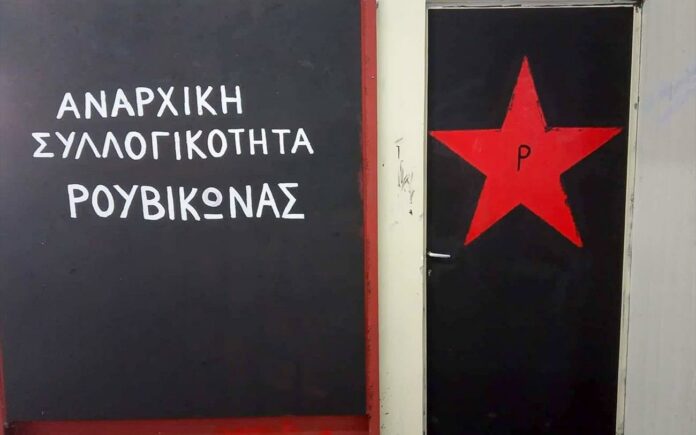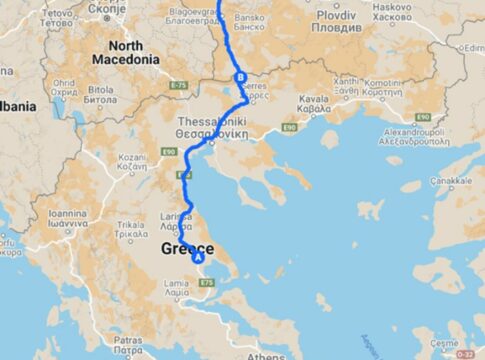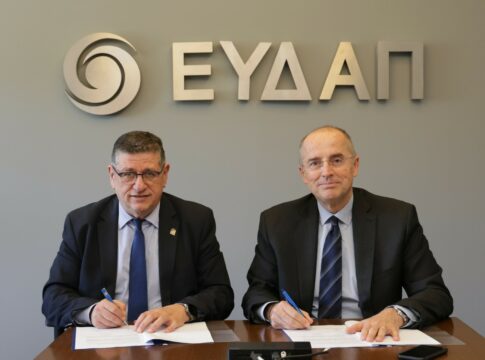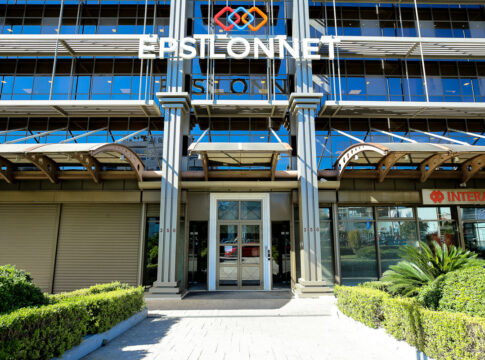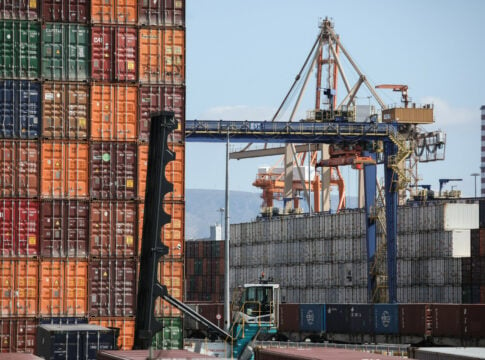The high-profile “interventions” of a self-styled “anarchist collective” in Greece, which has gained a measure of notoriety over the recent period by barging into foreign embassies, multinationals’ offices and public agencies to throw paint, leaflets and, at times, break office equipment, reached the pages of the Economist’s pages this week.
The “Rouvikonas” group’s latest provocation was to occupy an office in the Athens university’s philosophy faculty.
The respected UK weekly news magazine asks why members of the group remain unrestrained, and even questions whether its ostensible immunity stems for ruling SYRIZA party’s desire to burnish its “radical credentials”.
The article, entitled “How a group of Athens troublemakers goes unpunished”, reads:
“The down-at-heel neighbourhood of Exarchia in central Athens, known for its lively bars and tavernas, has long been home to a small but disruptive community of self-described anarchists. Violent street battles take place at weekends: extremists throw Molotov cocktails at police, who respond with tear gas. Long-suffering residents say their complaints are routinely ignored by the authorities.
One anarchist group, Rouvikonas (Rubicon), uses more sophisticated tactics to make its presence felt. Based in a cinema-cum-bar close to Exarchia’s central square, populated with drug pushers and sellers of bootleg cigarettes, Rouvikonas stages nuisance attacks against embassies, government buildings and the offices of multinational companies. Its members are not usually arrested. Prosecutors dismiss their actions as “too insignificant” to justify full-fledged investigation.
Rouvikonas’s victims would disagree. In recent months, its activists have fired paintballs at the Turkish, French and Austrian embassies; destroyed newly installed electronic ticket barriers at Athens metro stations; and smashed glass doors at the offices of Novartis, a Swiss pharmaceuticals firm. Many observers believe the Syriza government of prime minister Alexis Tsipras tolerates Rouvikonas’s activities, hoping to reassure left-wing voters that despite carrying out harsh austerity policies prescribed by Greece’s international creditors, the party is still at heart a radical movement. When police officers arrested several Rouvikonas members who broke into parliament last year, Nikos Voutsis, the Speaker, called up the citizens’ protection minister and ordered their immediate release on the grounds that “it was a simple act of protest”.
Counter-terrorism experts worry, however, that the group is becoming a training school for extremists. Some members of Rouvikonas have connections with the Conspiracy of Fire Cells, a group that in 2010 sent a clutch of letter-bombs addressed to European politicians, among them Angela Merkel, the German chancellor. Its leaders are now serving long jail terms, but another alleged member is awaiting trial on charges of sending a booby-trapped parcel in 2017 to Lucas Papademos, a technocrat who was also briefly prime minister during the euro crisis. Mr Papademos was seriously wounded while opening the package in his car.”



